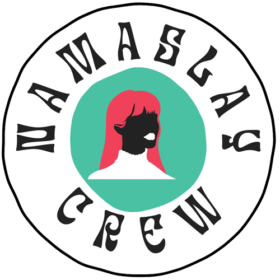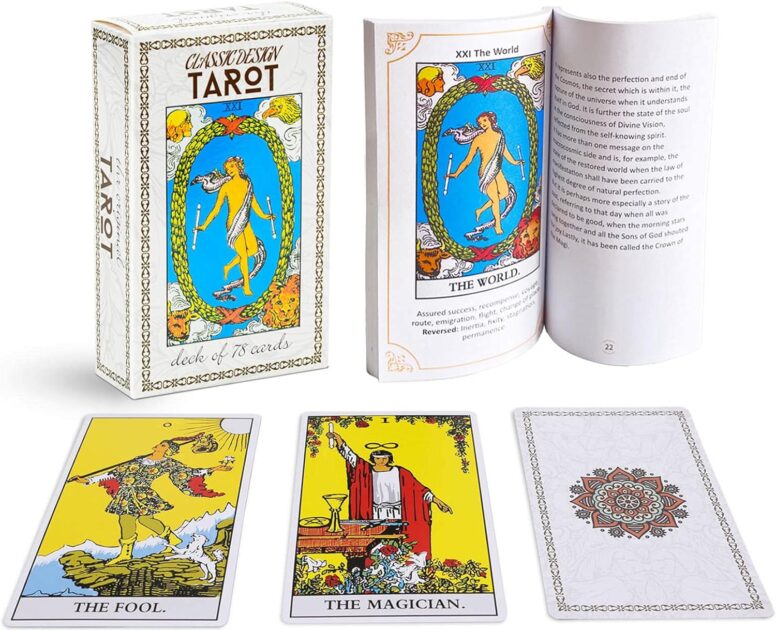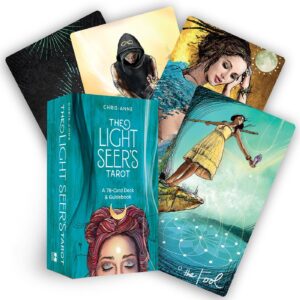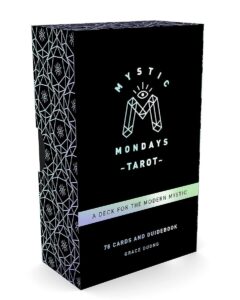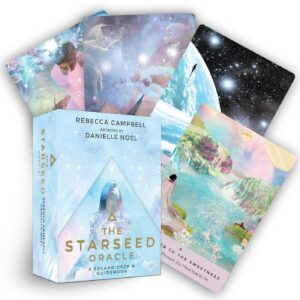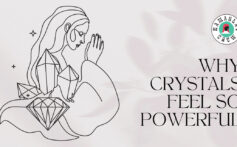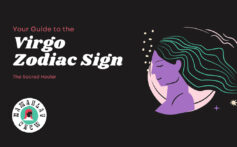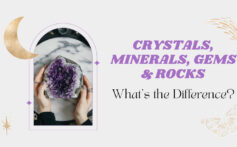The Fascinating History of Tarot Card Reading and Interpretation
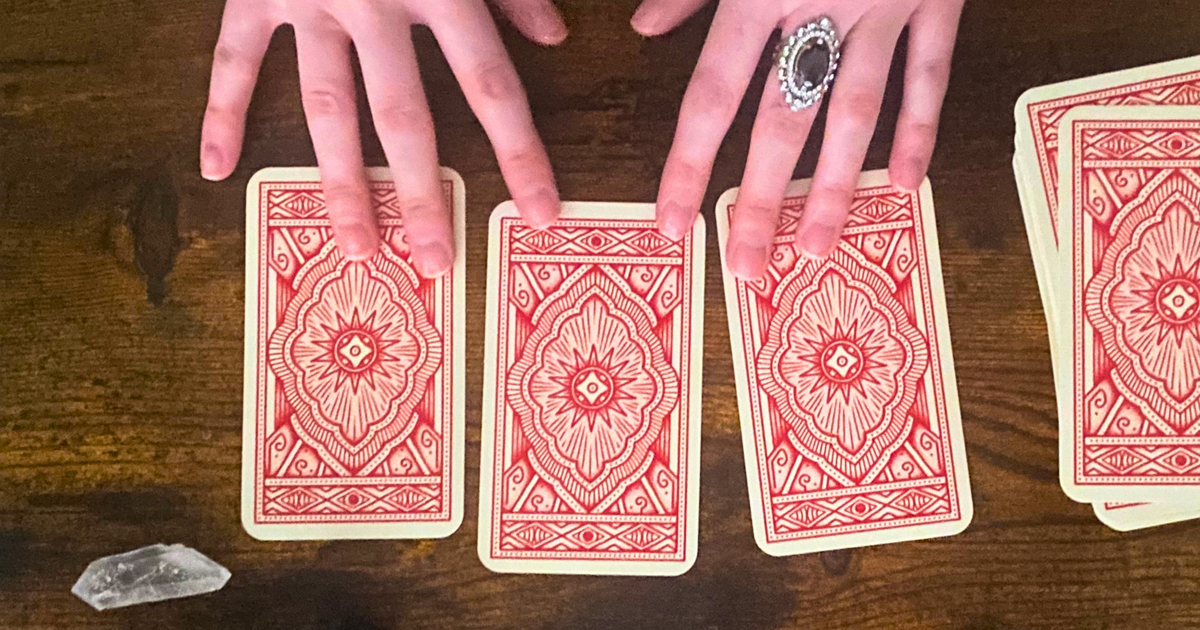
The Fascinating History of Tarot Card Reading and Interpretation
For many people, tarot cards are something out of the movies, but they actually have a rich history – a history that offers insight into their reading and interpretation. If you’re interested in learning more about tarot reading and its fascinating past, we offer this overview of its history and how reading tarot cards work.
The History of Tarot Card Reading
The tarot cards we use today are derived from playing cards created in the late fourteenth century. Artists in France and Italy created these “triumph cards” as a parlor game for wealthy families. They were intricately illustrated, sometimes featuring actual family members and friends of the family. Though once only available to the wealthy, the invention of the printing press meant these decks could be mass-produced, allowing the rest of society to enjoy this game, as well.
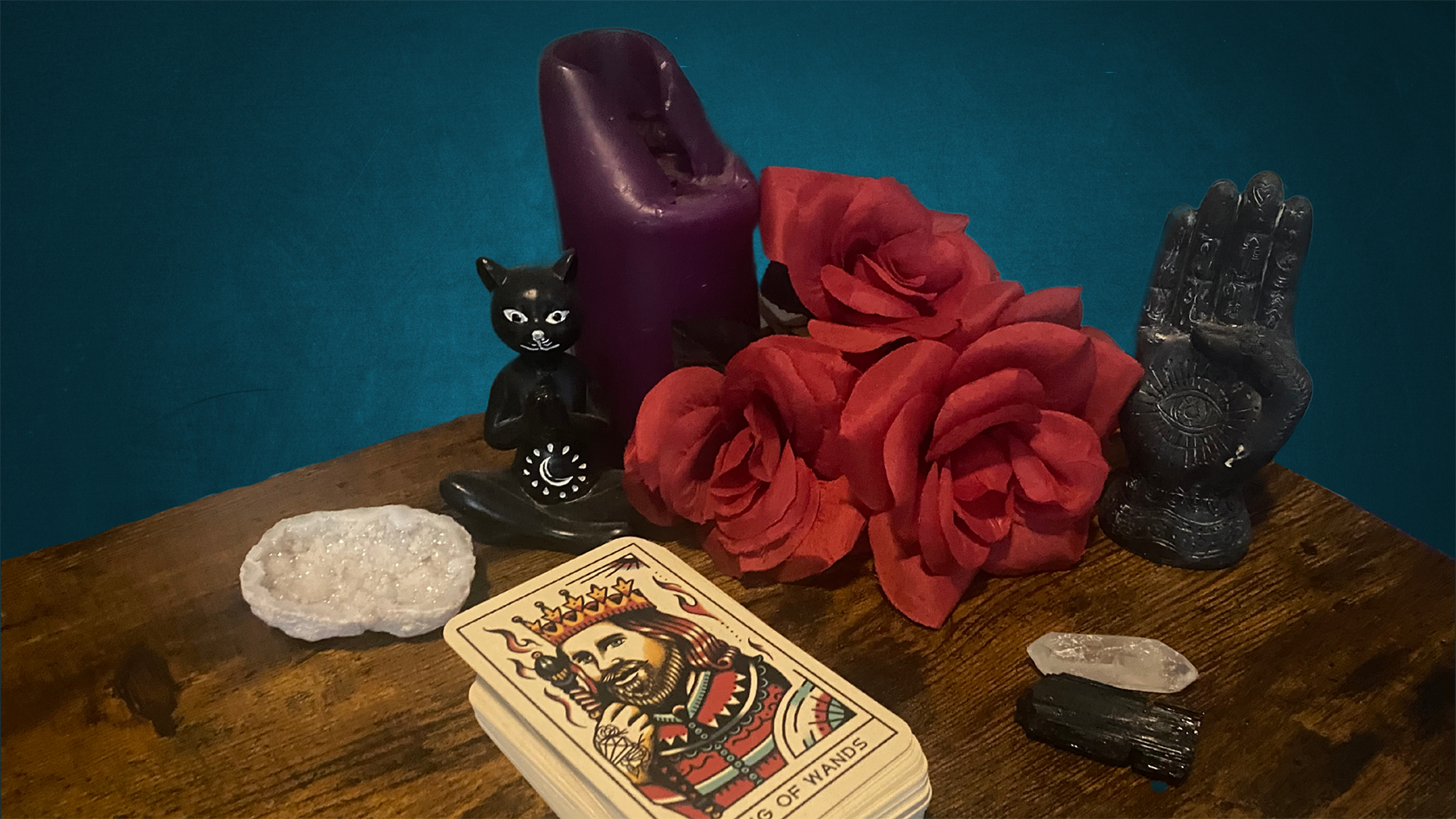
By the eighteenth century, tarot cards began to be used for more than games. They began to be used as a method for divination. A former minister named Antoine Court de Gebelin released an analysis of the cards in 1781 based on legends of Ancient Egyptian gods. He claimed that early occult knowledge was passed from Egyptian priests to the Catholic church, who wished to keep it secret. A decade later, French occultist Jean-Baptiste Alliette created the first deck of tarot cards specifically developed as a divination tool instead of a means of entertainment.
How Do Tarot Cards Work?
Tarot card readings have been used as a divination tool for centuries. They provide insight into character, detail a person’s life journey, offer guidance, reveal obstacles to be overcome, and teach spiritual lessons. Accurate tarot card readings require you not only to study the cards but to remain focused and open-minded in accepting psychic messages.
You may perform a tarot card reading for yourself or for another person, but the process is the same. The individual seeking an answer or advice shuffles the deck of cards, then picks out a predetermined number of cards to be placed face-down by the reader in a specific arrangement. This arraignment is referred to as a spread. The reader flips the cards face-up one at a time and commences interpretation of the cards based on knowledge of their meanings and their placement in the spread, as well as their own intuition and unique impressions.
Understanding the Tarot Deck
The contemporary tarot deck is comprised of 78 cards, 22 of which form the Major Arcana and 56 of which form the Minor Arcana. Here’s an explanation of each of these two sections.
Major Arcana
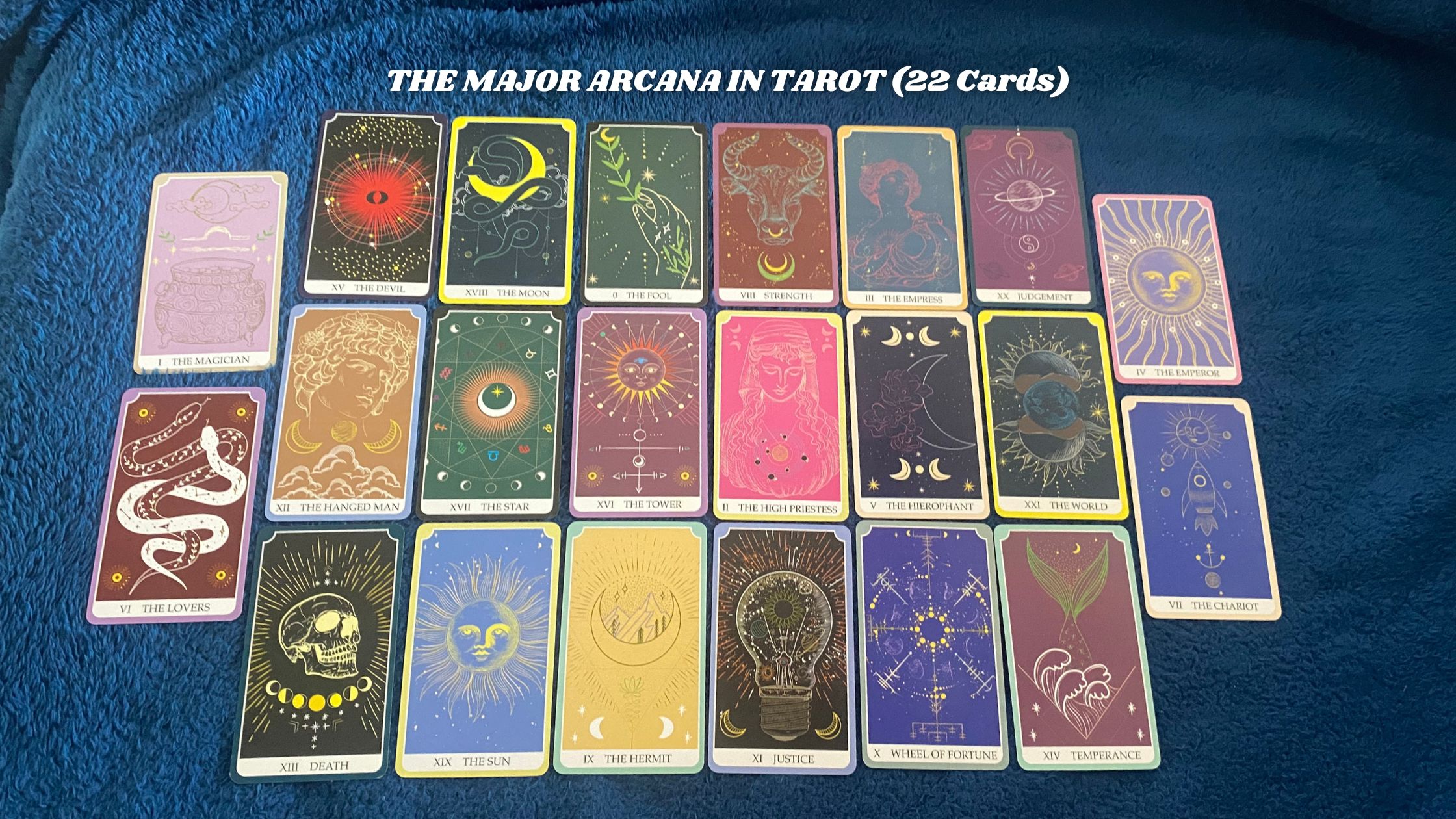
Major Arcana cards, translated as “greater secrets,” are focused on symbolism and foretelling of the future. They are individually numbered from zero to twenty-one and comprise various values, archetypes, celestial bodies, and symbolic objects. In numerical order, the Major Arcana cards include: The Fool, The Magician, The High Priestess, The Empress, The Emperor, The Hierophant, The Lovers, The Chariot, Strength, The Hermit, Wheel of Fortune, Justice, The Hanged Man, Death, Temperance, The Devil, The Tower, The Star, The Moon, The Sun, Judgment, and the World.
Minor Arcana
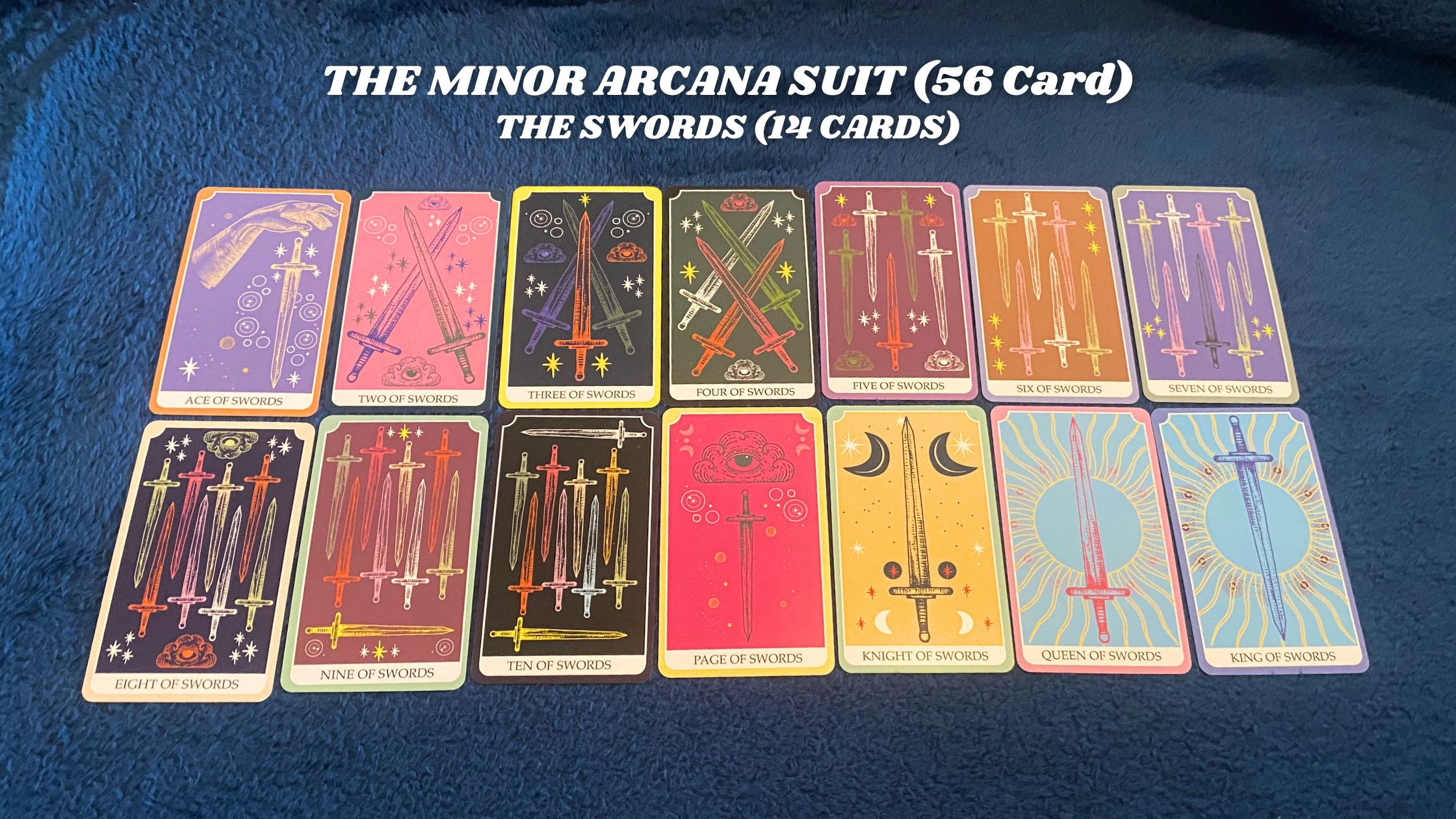
Minor Arcana cards, translated as “lesser secrets,” are focused on the obstacles faced in everyday life. Similar to traditional playing cards, they are split into four suits. Each suit includes cards numbered one through ten, as well as four face cards: The Page, The Knight, The Queen, and The King. Additionally, each suit is associated with a different element and set of concepts:
- Pentacles / Earth – physical expression
- Wands / Air – thought, idea, communication
- Swords / Fire – power, action, conflict
- Cups / Water – feeling, emotion, spirit
Question Reading VS. Open Reading
Tarot card readings can be divided into two types: question readings and open readings. Question readings are undertaken with the goal of answering a specific question or helping someone make a particular decision. Open readings provide more general insight into different aspects of your life and the energies that may be affecting it. Question readings focus primarily on the minor arcana cards, while open readings focus primarily on the major arcana cards.
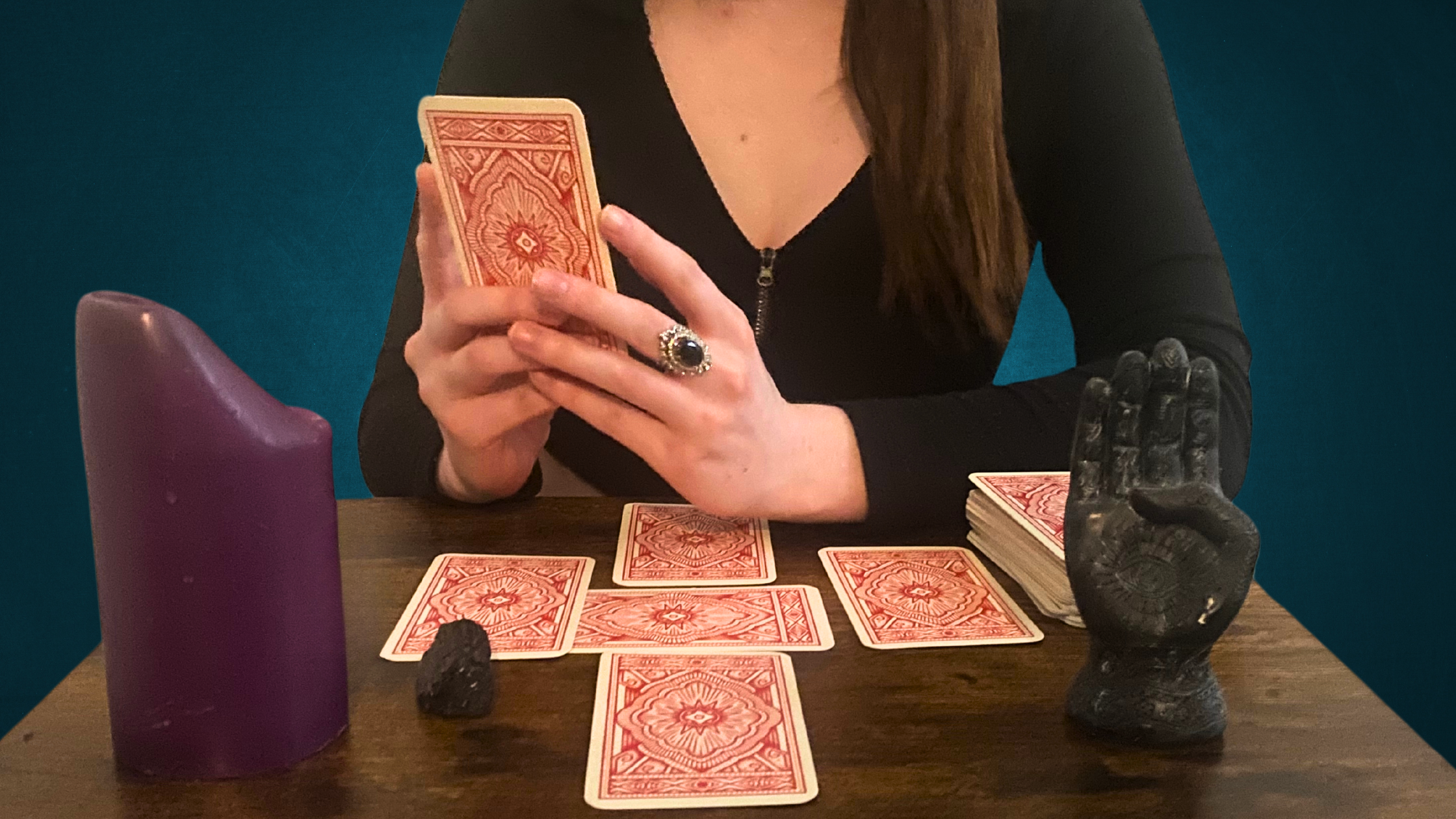
Tarot Card Reading Spreads
Though tarot cards each have their own meaning and interpretation, reading tarot cards means more than looking at each card’s value. Once a reader has studied the meanings of the cards, the next step is to study the various spreads – or arrangements. Like each card offers unique insight, so do the spreads. For each reading, the tarot card reader will choose a spread based on the specific answers being sought. There are many types of spreads. The most common ones are discussed below.
The Three Fates Spread
The simplest spread is The Three Fates Spread. It is the best starting point for beginners interested in tarot card reading. There are many spread variations readers will use, based on the information they seek. Traditionally, the first card symbolizes the past, the second card the present, and the third the future. For the clearest results, it is best to focus on the immediate past and immediate future. For example, the past card can be used to analyze thoughts and feelings from the previous week, the present card to analyze current thoughts and feelings, and the future to suggest how events may unfold in the upcoming week, influenced by the past and present.
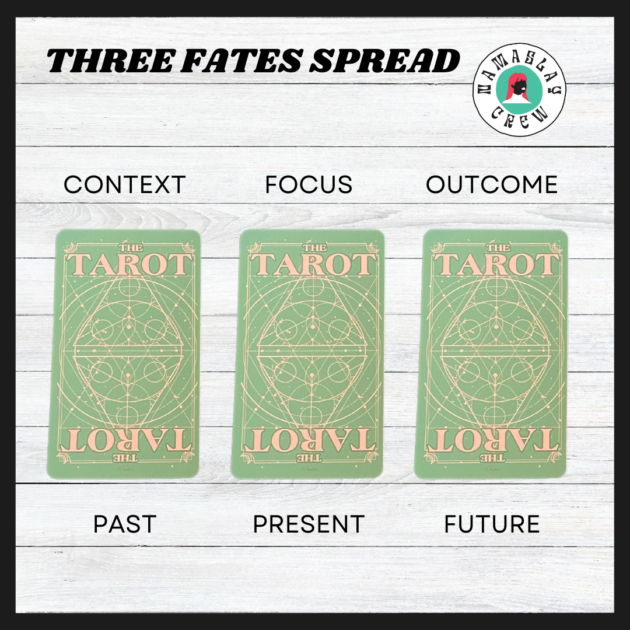
This spread can also be interpreted as a problem to be solved, with the first card representing the context, the second card the focus, and the third card the outcome. For example, if you are interested in achieving a specific goal, the first card could represent your current situation, the second card your desired situation, and the third card the method for achieving this goal.
The Pentagram Spread
The Pentagram Spread is aptly named as it forms a five-pointed star with each point representing the four elements, along with spirit. In the middle, a card is selected to symbolize the person receiving the reading.
The five surrounding cards can be read as:
- Earth: what supports you and what prevents you from progressing
- Air: your positive and negative influences and the force of their impact
- Fire: the conflicts you face, both internal and external
- Water: the knowledge you can gain from your situation
- Spirit: your current path and where you will end up
The Celtic Cross Spread
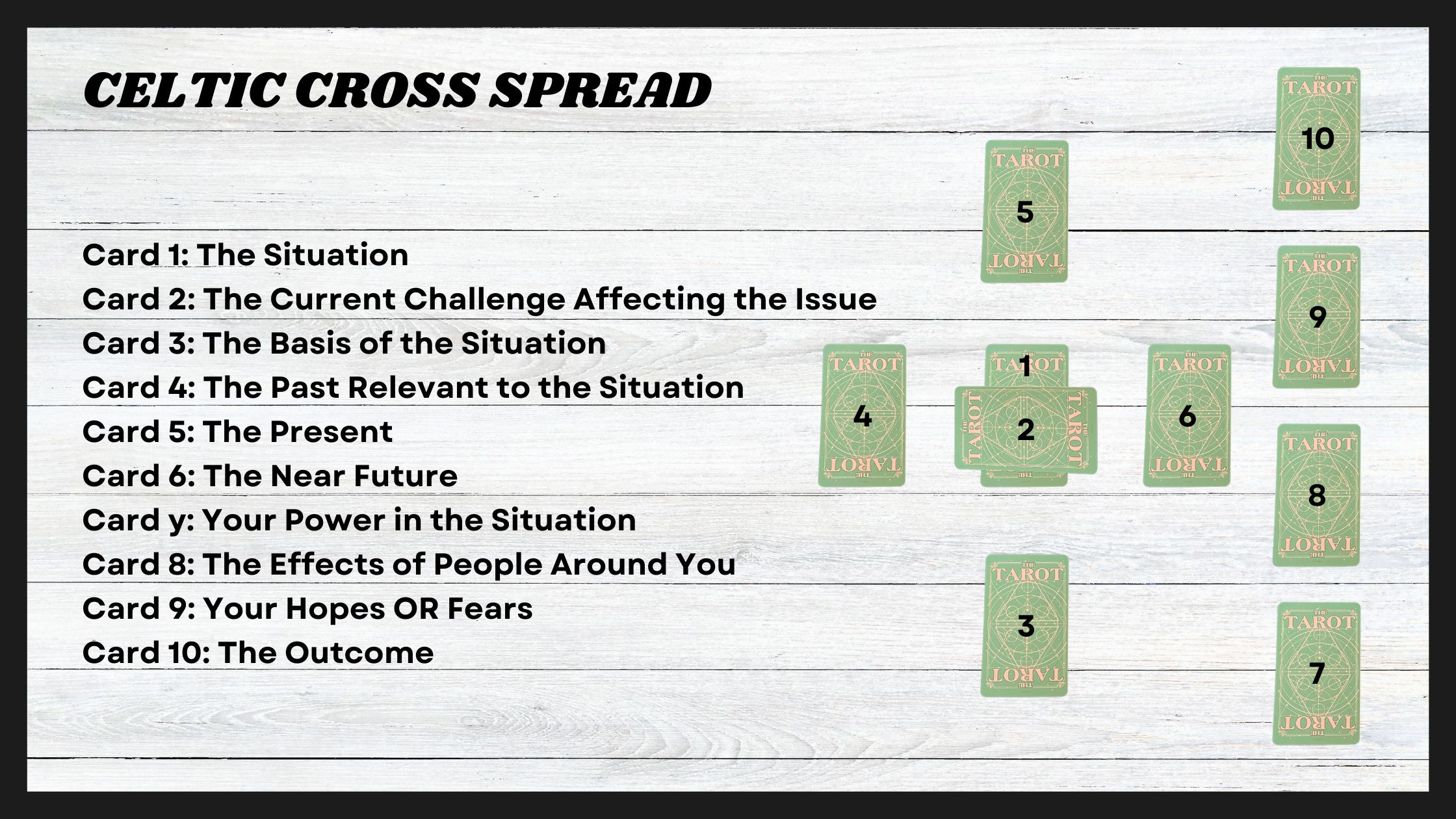
This spread features ten cards, six cards to the left in the shape of a cross with two overlapping cards in the middle, and four cards to the right in a vertical stack. Within the cross, there are cards representing the present, the challenge, the past, the future, “above” / your aspirations, and “below” / your subconscious. The stack of cards includes advice, external influences, hopes and fears, and the outcome if continuing on the current path.
The Astrological Spread
In the astrological spread, twelve cards are placed in a circle similar to the numbers on a clock. This layout is designed as a depiction of the next twelve months of the seeker’s life. If you are the reader, you may also choose to place a thirteenth card in the middle as an overview of the whole year. Instead of laying only one set of cards, you can create this circle a total of six times with six of the optional center cards. The more cards you lay, the more information will be available to you.
Each card represents a house in astrology, with the first card taking the nine o’clock position in the circle, moving counterclockwise until the twelfth card takes the ten o’clock position:
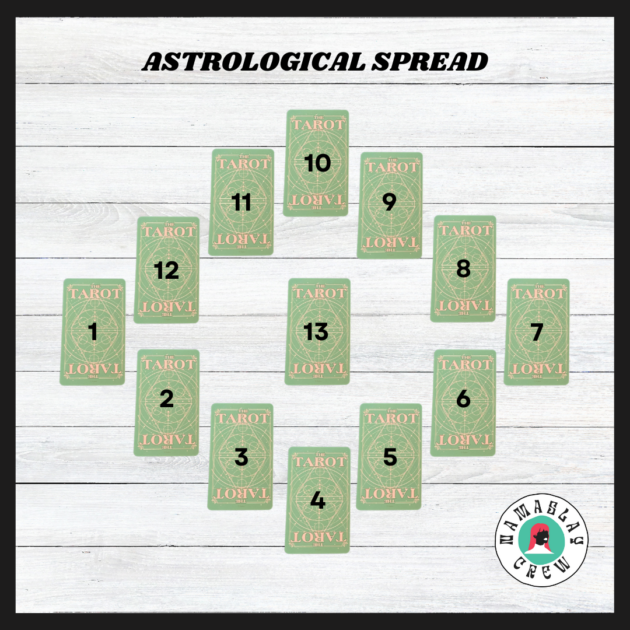
- The Self / Aries – your basic personality and how others view you
- Financial values / Taurus – your bank account, possessions, and earning potential
- Communication and travel / Gemini – your everyday life and activities
- Home Life / Cancer – your relationships with family members
- Pleasure / Leo – your romantic life
- Health and Work / Virgo – your emotional and physical health and work-life
- Marriage and Partnerships / Libra – personal and professional one-to-one relationships
- Beginnings and Endings / Scorpio – changes
- Philosophy / Sagittarius – learning and education
- Career / Capricorn – your reputation and achievements
- Friends / Aquarius – your social life
- Burdens / Pisces – your mystical life, including your subconscious
- Outcome
Getting Started with Tarot
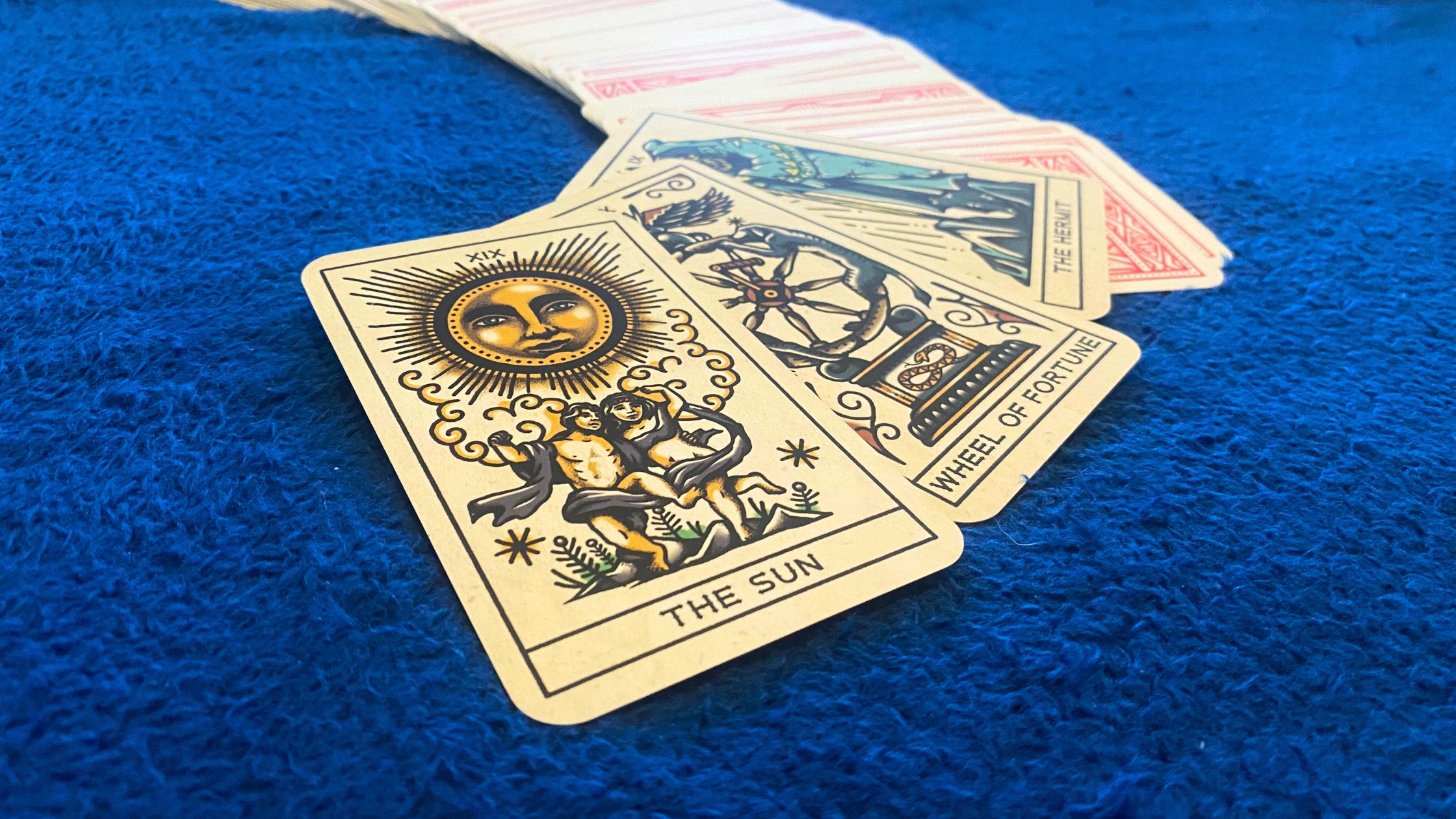
Now that you’ve learned everything you need to know about tarot card reading, the next step is the most exciting – picking your deck! Explore the various kinds of imagery featured in different decks and you will be sure to find one that speaks to you. It is incredibly useful to choose a deck that features a guidebook, as this makes for the most comprehensive interpretations.
Although there are literally hundreds of tarot decks to choose from, here are some of our top favorites for sell online:
If you want to start with a classic deck, this one is perfect. The artwork is faithful to the original, done in high quality color restoration. The pure white and patterned box make this Tarot have higher collection value. It also comes with a guidebook for those who want a quick meaning of the cards and how to use them This deck is a top seller on Amazon with hundreds of 5 start ratings!
Light Seer’s Tarot: A 78-Card Deck & Guidebook
Looking for a more contemporary deck? This boho and intuitive style reimagines the traditional tarot archetypes and symbols. The expressive characters who live within the landscapes of the cards tell stories, ask questions, and provide guidance. This set comes with a 192-page guidebook of detailed keywords, meanings, and a mantra for each card.
Mystic Mondays Tarot: A Deck for the Modern Mystic
Another modern take on the tarot, this stunning deck is vibrant, beautifully illustrated, and ready to help you connect to your intuition. It comes with 78 brightly designed cards and a hardcover guidebook. It’s full of positive vibes that invite you to start fresh any day of the week. Makes a delightful and mystical gift for any tarot card and arcana fan.
The Starseed Oracle: A 53-Card Deck and Guidebook
Look at those colors! This breathtaking 53-card oracle deck is for starseeds, empaths, lightworkers and seekers. Starseeds are souls that first incarnated somewhere beyond this planet… many have a sort of “knowing” from a very young age. Depicting energy portals, ancient sites, faraway planets and star systems, the oracle is otherworldly, literally opening a path to things that cannot be seen with our eyes.
Do you practice Tarot? Which deck is your favorite and why?
*Editor’s Note: This article as originally published Oct 6, 2020 and has been updated March 20, 2024.
